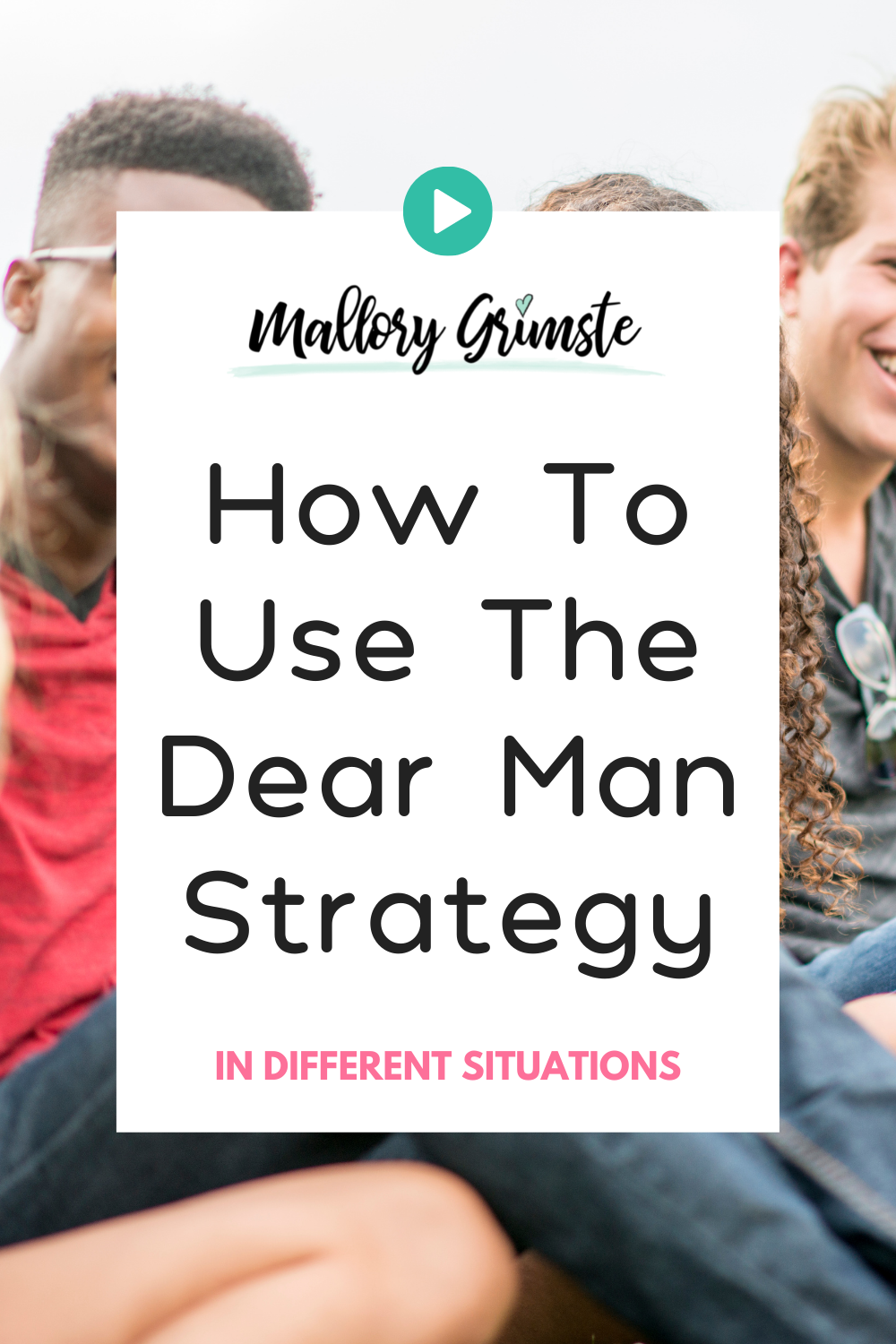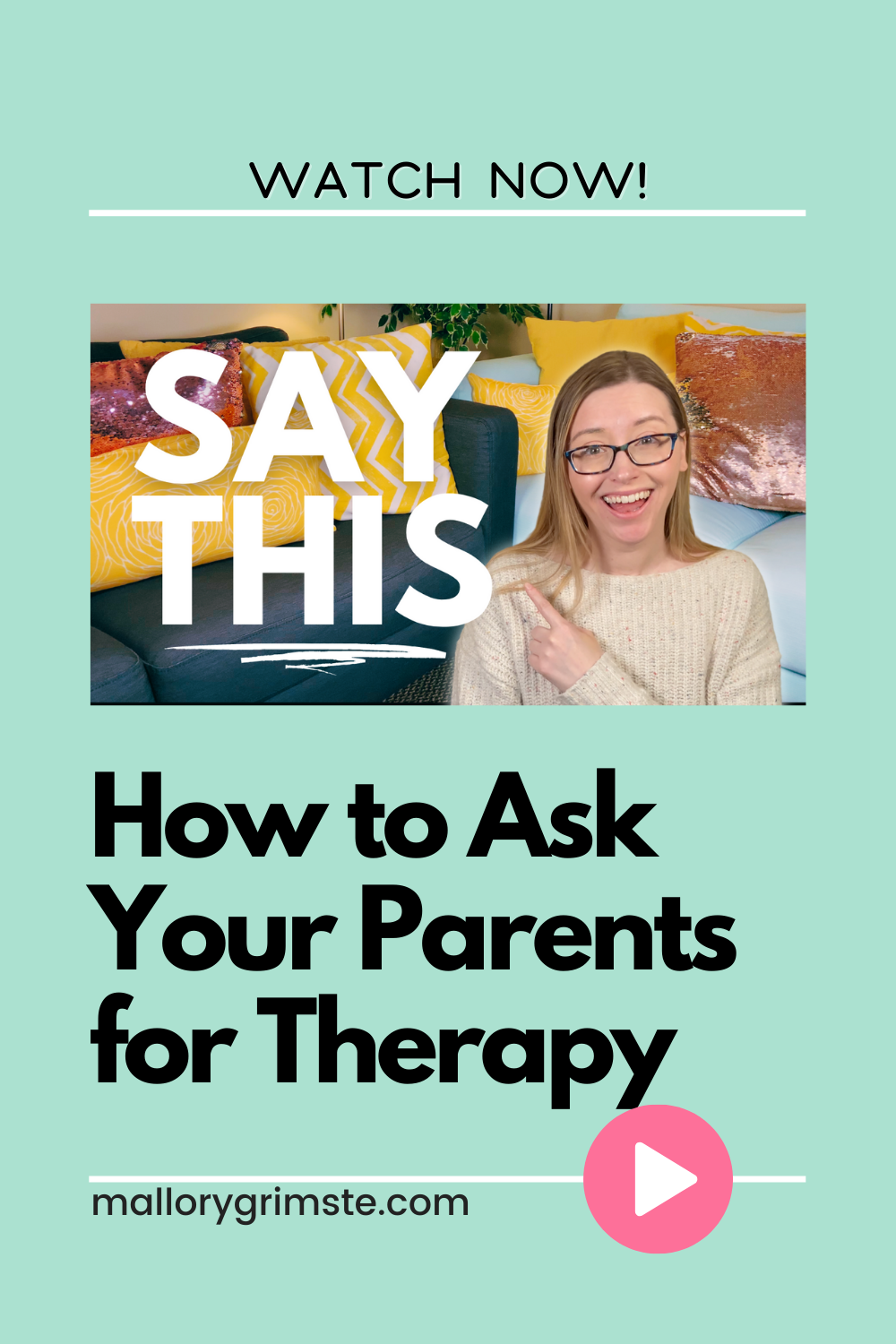Tapping into Self Love #WithMe (Affirmations for Teenagers)
Tapping into Self Love when you're a teenager can feel like a big challenge. Self-esteem peaks around age 9 and then dramatically dips. Developing healthy self-love practices can help improve your self-esteem and confidence so you can feel happy. Mallory Grimste, LCSW guides how to use Emotional Freedom Technique (EFT), sometimes called "tapping," along with validating positive affirmations.
I'm a Teen Therapist and I'm answering: "Should I cover my self-harm scars?"
Therapist Answers: Should I cover my self-harm scars video post from Mallory Grimste, LCSW (counseling for people physically located in CT + NY). *Content Warning: This video contains content related to help for Self Harm.
>> Please take the appropriate steps to protect your mental health + expectations. In the US you can text the Crisis Text Line 24/7 at 741-741.
Coping with Summertime Depression ☀️😭
Coping with Summertime Depression ☀️😭 | We need to talk about the "other" seasonal depression- Summer Depression ☀️😭. Here are 5 therapist approved ways you can Cope with Summertime Depression from Teen Therapist and Mental Health YouTuber, Mallory Grimste, LCSW *Content Warning: This video contains content related to help with Depression. → Please take the appropriate steps to protect your mental health + expectations. In the US you can text the Crisis Text Line 24/7 at 741-741.
Coping with Body Image Struggles?? | 5 Therapist Approved ways to improve your self-esteem
Coping with Body Image Struggles?? | 5 Therapist-approved ways to improve your self-esteem - When you're a teenager it's typical to struggle with your body image. These 5 therapist-approved strategies from Teen Therapist Mallory Grimste, LCSW will help you improve your self-esteem. Which one are you going to try implementing first?
CONTROL Your Test Anxiety!! (therapist approved strategies)
If you are ready to CONTROL your test anxiety, you need to try these 5 therapist-approved strategies to overcome and beat your exam anxiety. Mallory Grimste, LCSW is a mental health therapist with a counseling practice serving teens physically located in CT and NY
3 Minute Guided Meditation for Teenagers who need to Focus
Trouble focusing?? Try this 3 minute guided mediation for focus #WithMe Mallory Grimste, LCSW. It's no secret that practicing mindfulness can improve your ability to focus. This can make it easier to get motivated to do your homework or study. This is a great meditation to use as you get ready for AP and Finals exam season, too.
Trouble Focusing?? Declutter Your Desk #WithMe (stop procrastinating and do your homework)
If you're anything like me, when your desk is cluttered and disorganized, you also have a difficult time staying focused and completing your assignments. As a mental health therapist for teens, Mallory Grimste, LCSW sees this struggle and its impact over and over again. As inspiration, and hopefully motivation, I thought rather than talk about how to declutter your desk, I'd invite you to join me as I declutter my desk so you can stop procrastinating and do your homework fast!!
When Anxiety Makes You ANGRY!! featuring Kelsey Torgerson Dunn, LCSW
Kelsey Togerson Dunn, LCSW literally wrote the book on what to do When Anxiety Makes You Angry! They graciously allowed me the opportunity to interview them about questions people like you had about these concepts and the skills she recommends in her new book. Watch the full interview on Mallory Grimste’s YouTube channel.
Get what you want using the DEAR MAN strategy (compilation mix)
The DEAR MAN strategy is communication GOLD if you struggle to ask for what you want. DEAR MAN is a communication strategy that is a part of DBT's Interpersonal Effectiveness module. Dialectical Behavior Therapy recommends you use the DEAR MAN strategy when you want to get what you want more effectively. In this compilation mix, Mallory Grimste, LCSW explains how to ask for help using the DEAR MAN strategy then shares 3 different examples of how you can use this strategy in real-life.
How to Ask Your Parents for Therapy (and Get Help) in 2022
When you are legally or financially reliant on your parent's permission, it can be difficult to know how to ask your parents for therapy. Using the communication strategy DEAR MAN can help you ask for therapy more effectively so you get help when you're a teenager.










